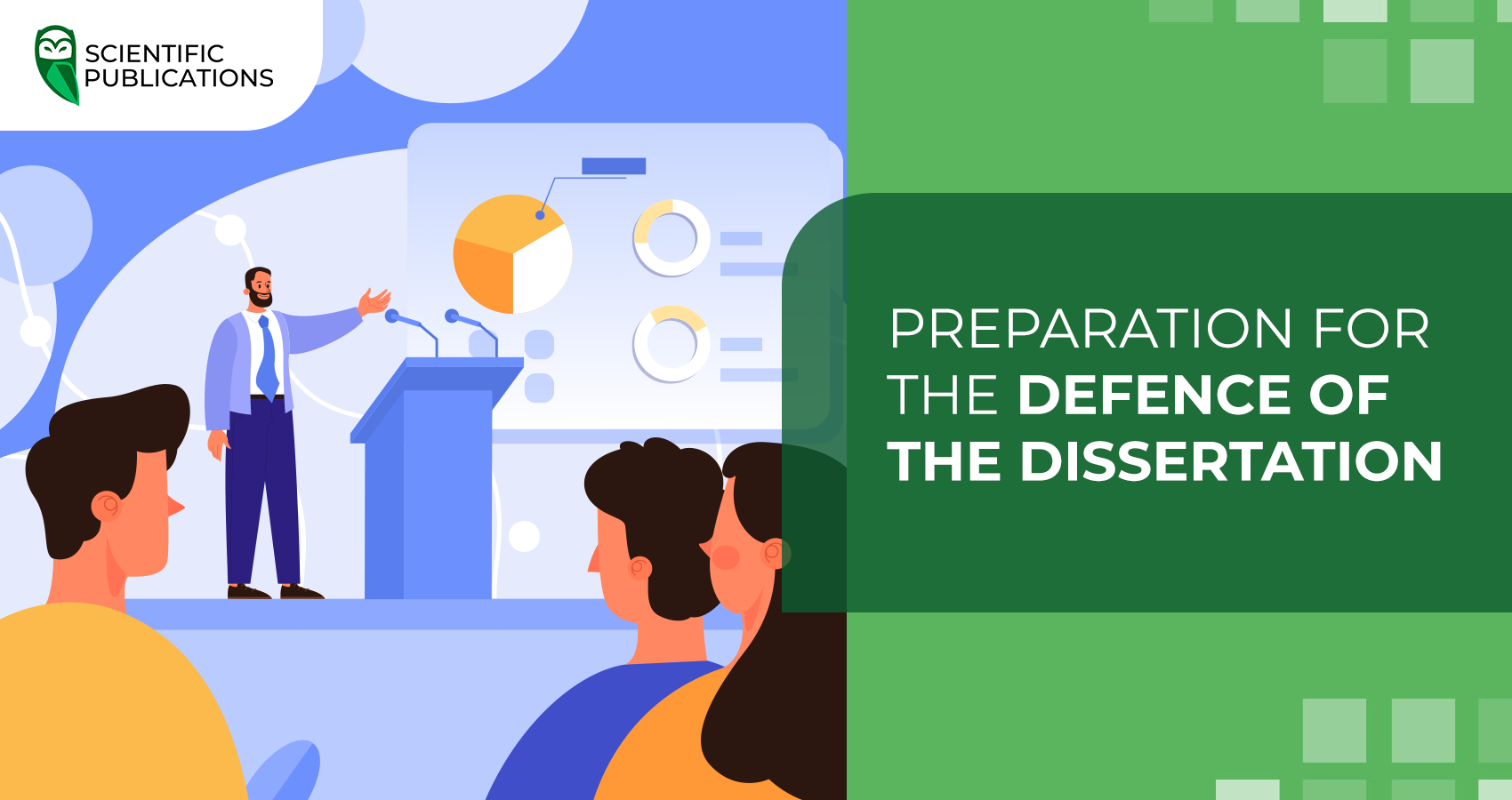Writing a dissertation is a difficult and crucial moment in the life of every researcher. But there is still the stage of defending the thesis before the committee, which is accompanied by worries and nerves. 
A dissertation – is a complex and time-consuming work in which a researcher describes in detail the research he or she has conducted. Writing and defending a dissertation is one of the most important stages in the life of every scientist and scholar. Before the defence, the author brings his or her work to perfection in order to present his or her research to the committee in the best possible way. However, the defence stage itself is quite stressful and can cause researchers some anxiety. This article is devoted to tips and tricks on how to prepare for a dissertation defence.
Tips for the dissertation defence
1. The content of the report.
Carefully compose the text for your speech. The text of the report should fully convey the main content of your dissertation. The text should not be overloaded, as this will make the report more difficult to understand, and an excessive number of terms may make the report more incomprehensible and tire the audience. However, too simple a wording may not reflect all the nuances and details of the research. The commission may get the impression that the research is rather superficial. At the end, thank the committee and the audience for their attention.
2. Duration of the speech.
There is a specific time limit for a dissertation defence. It is necessary to compose the text of the report in such a way as to have time to tell the main content of the study without overloading it. We recommend that you pay more attention to and emphasise the originality and practical significance of the results obtained.
3. Preparation of the report for presentation.
We recommend that you illustrate the data in your thesis defence report with graphic material, such as charts, graphs, diagrams, tables, etc. Such tools will allow you to clearly show the results obtained, the feasibility of their implementation, etc. Poorly and carelessly executed and designed graphic materials may raise more questions and comments at the defence.
4. Rehearsals.
Do not avoid such an important stage of preparation as rehearsal of the report. Rehearse and practice at home, and it will also be helpful to practice in front of family or friends. We recommend that you rehearse by setting a timer in advance.
The pace of your speech should not be too fast or too slow. We recommend leaving some time to explain graphic (demonstration) material. It will be useful to make certain marks in the text where you plan to pause to explain such material.
5. Reading the report.
It is not recommended to read the entire text of the report from the sheet, as this may give the impression that you are unprepared in front of the audience and the committee. Study the prepared text, and rehearsals will help you identify difficult-to-memorise ‘weak’ spots. In such places, you should look at the text during your presentation.
In addition, you can prepare separate theses from the text of the report. By periodically looking at the theses instead of reading the entire report from the page, you can create a positive impression on the audience and avoid forgetting or confusion.
6. Answering questions.
It is recommended to anticipate possible questions that may arise during the meeting with the commission. It is important to analyse the comments made by the supervisor, opponents and other participants at the pre-defence. This will help you prepare comprehensive answers to possible questions.
7. Appearance.
At the defence, you need to make a good impression on the members of the committee. For a successful defence, it is important to choose the right look that reflects professionalism and care. Your clothes should be formal and appropriate for the event. Hair should be neat and well-groomed, and minimalist accessories should be chosen. Manners should be polite and professional, and movements should be restrained.
8. Attend similar events.
If possible, it is recommended to attend other defences of dissertations, research papers, etc. This will be useful and will allow you to prepare for your own defence. Visiting defences will allow you to get an idea of how the defence process goes, how the discussion between the speaker and the committee is conducted. Attending research defences will help you understand professional ethics, note presentation styles, etc.
Defending a dissertation is a responsible and difficult stage in the professional path of every researcher. Before defending your dissertation, it is important to get a good night's sleep and, if necessary, do breathing exercises to cope with anxiety and stress. Keep your cool and be confident.





